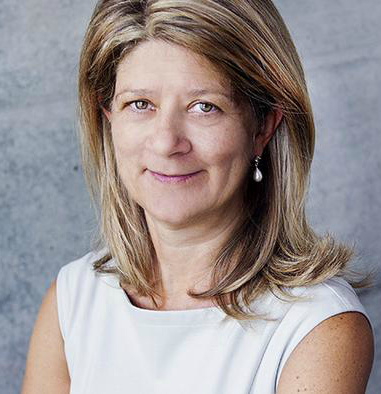Prof. Dr. Gudela Grote
Associate Member CRSA
Professor of Work & Organizational Psychology
Department of Management, Technology, and Economics ETH Zurich
Contact
Weinbergstrasse 56/58 Room WEV K-507 CH-8092 Zürich +41 (0)44 632 70 86 ggrote[at]ethz.ch |
Short Bio
Gudela Grote has been full Professor of Work and Organizational Psychology at the Department of Management, Technology, and Economics since 2000. Before she was Assistant Professor (since 1992) and Associate Professor (since 1997) at the ETH Zurich.
The main objective of her research is to provide psychologically based concepts and methods for integrative job and organizational design, taking into consideration the changing technological. economic and societal demands and opportunities. A special interest are the increasing flexibility and virtuality of work and their consequences for the individual and organizational management of uncertainty. Application fields for Prof. Grote`s research are e.g teamwork and standardization in high-risk systems, management of the psychological contract, career development, effects of new technologies on work processes, and collaborative planning within an between organizations.
Prof. Grote is associate editor of the journal Safety Science and member of the editorial board of several other journals. She has published widely on topics in Organizational Behavior, Human Factors, Human Resource Management, and safety management. She has worked with companies such as the Swiss Railways, Swiss Re and various public organizations. Together with Prof. Bruno Staffelbach from Zurich University she publishes annually the "Schweizer HR-Barometer".
Selected Publications
When do employees cross boundaries? Individual and contextual determinants of career mobility, in European Journal of Work and Organizational Psychology, 2018, 27(5), 657-668, (with Angelika Kornblum and Dana Unger). doi.org/10.1080/1359432X.2018.1488686
Operating lists are created by rational algorithms and use of power. What can a social scientific view offer surgeons?, in Langenbeck's Archives of Surgery, 2017, 402(1), 187-190, (with Carsten Engelmann, Siegfried Geyer, and Dzifa Ametowobla). doi.org/10.1007/s00423-016-1516-y
The case for reinvigorating quality of working life research, in Human Relations, 2017, 70(2), 149-167, (with David Guest). doi.org/10.1177%2F0018726716654746
There is hope for better science, in European Journal of Work and Organizational Psychology, 2017, 26(1), 1-3. doi.org/10.1080/1359432X.2016.1198321
Why didn’t you say something? Effects of after-event reviews on voice behaviour and hierarchy beliefs in multi-professional action teams, in European Journal of Work and Organizational Psychology, 2017, 26(1) ,66-80, (with Mona Weiss, Michaela Kolbe, Donat R. Spahn, and Bastian Grande). doi.org/10.1080/1359432X.2016.1208652
Routine interdependencies as a source of stability and flexibility. A study of agile software development teams, in Information and Organization, 2016, 26(3), 63-83, (with Denniz Dönmez and Stefano Brusoni). doi.org/10.1016/j.infoandorg.2016.07.001
Are support and social comparison compatible? Individual differences in the multiplexity of career‐related social networks, in Journal of Applied Social Psychology, 2015, 46, 7-18. (with Cécile Tschopp and Dana Unger). doi.org/10.1111/jasp.12338
Predicting Air Traffic Controller Workload: Trajectory Uncertainty as the Moderator of the Indirect Effect of Traffic Density on Controller Workload Through Traffic Conflict, in Human Factors , 2016, 58(4), 560-573, (with Sifra Christina Corver and Dana Unger). doi.org/10.1177%2F0018720816639418
